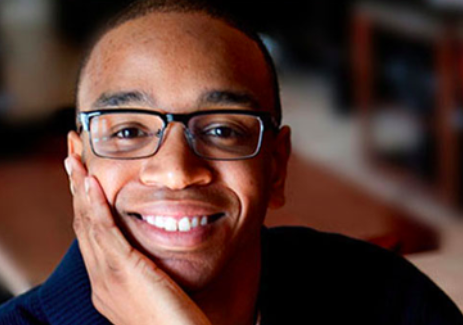Jordan Burnham admits he’s a work in progress.
In his battle with depression, he told Cabrini University students that he approaches challenges “one step at a time.”
Burnham, a national advocate for mental health, kicked off Suicide Prevention Month, speaking at the university’s first common hour on Sept. 1 in the Grace Hall atrium.
“I never want anyone to see my presentations and say ‘yeah Jordan’s good’ I’m always a work in progress. The process is never linear. Always one step at a time,” a nationally-recognized mental health advocate said.
As the keynote speaker, Burnham inspired, educated and allowed others to know they’re not alone when it comes to depression and recovery. The lecture was also live-streamed on the university’s Youtube channel. ![]()

A survivor of a suicide attempt, Burnham shared powerful stories of the painful journey that brought him to that point, and how he found recovery and help.
His story begins in third grade after he had to make the transition from private to public school. He talks about being bullied for the way he talked and dressed.
Burnham stressed how he and his older sister became each others’ “therapist” and how the two became so close. Eventually his sister then went off to college, leaving him alone. In middle school, he had to switch schools again. He felt depressed and lonely, because he didn’t fit in and he hid under a mask, even though he was elected class president. Burnham tried to please people and in the process, he said he lost himself.
Burnham turned to alcohol to cope. “I drank to talk about real things. I wouldn’t admit to things when I was sober,” he said.
He then shared a funny story, giving an example of this, about his friend “Tom.” He explained while at a party, he heard someone singing Hannah Montana in a room. Burnham walked in and it was his friend. “He would never admit singing to Hannah Montana sober, he felt comfortable saying it drunk,” he said.
At the age of 16, Burnham was diagnosed with depression after he began seeing a therapist. “Most people know why they are feeling depressed, but not everyone knows why they are depressed when having depression.”
Heading into junior year, he felt the pressure even more, as most know it is your most important year of high school. He recalls the emotion of not wanting to die, but wanting the part of him that had depression, “I want that to die.”
He was admitted to a behavioral hospital, where he felt he didn’t belong because he didn’t have “more serious issues.”
“There were things I could tell complete strangers that I had just met, that I couldn’t even tell my best friends without alcohol,” he said. “You come here to learn how to cope with your mental health issues, not compare them.”
Senior year is when things intensified more. With the weight of everything on his shoulders, suicidal thoughts began to appear in his head.
Then one night changed everything.
His father had dropped a duffle bag in front of his feet full of empty alcohol bottles, and he saw the disappointment on his parents face.
Thoughts of “I don’t belong here anymore. They don’t want me to be their son anymore, I can’t make anyone happy, what’s the point of being here?” flooded his head.
He went upstairs to his room and jumped out his window, 100 feet, a nine-story fall.
In the hospital, he was given a 40 percent chance to live, spent two weeks in the ICU and in a coma for 10 days.
“To this day, I don’t remember jumping out that window. I remember the whole day. No one was in the room and I was sober. It was very impulsive,” he said.
Now, Burnham has spent the past 14 years sharing his story. He now has a great relationship with his parents and sister and is married with two fur babies.
“I had to be more open about my depression,” he said. “I gained perspective and forgave my parents for not understanding my mental health.”
To positively cope with his depression now, he says he still sees a therapist to this day, Facetimes with friends, exercise, meditation, listening to podcasts and rap music and journaling.
Changing the stigma, he says begins with stories. “Sharing stories will lead to education, that will lead to legislation.”
“The conversation has to start somewhere,” Burnham said. Whether it is with yourself, a trusted friend or family member, a teacher or a coach. “When I share my story that’s what I hope it starts, a conversation.”




—-Speaker who survived suicide attempt confronts mental health stigma ???
Until we confront those taught or teaching that prejudice the will continue to teach it.
y
Harold A Maio